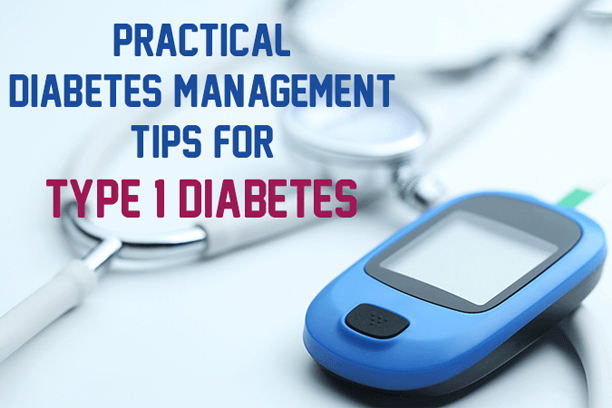What in Diabetes Management?
Diabetes, a chronic condition affecting millions globally, demands a multifaceted approach to management. At its core, effective diabetes management is an amalgamation of lifestyle adjustments, medication adherence, regular monitoring, and education. At DIET , we endeavor to provide a holistic perspective on diabetes management, aiming not just to inform but to empower individuals dealing with this condition.
The Essence of Diabetes Management
Managing diabetes isn't merely about controlling blood sugar levels. It's an intricate balance that encompasses several facets of health. It involves not only regulating blood glucose but also mitigating associated risks such as cardiovascular diseases, kidney impairment, nerve damage, and vision problems.
Nutrition: A Vital Component
The role of nutrition in diabetes management cannot be overstated. Crafting a well-balanced diet tailored to one's specific needs can significantly impact blood sugar levels. Emphasizing whole foods, vegetables, lean proteins, and healthy fats while

limiting processed sugars and refined carbohydrates helps in maintaining steady blood glucose levels.
Exercise and Physical Activity
Regular physical activity is another cornerstone of managing diabetes. Engaging in exercises that cater to individual fitness levels aids in weight management and improves insulin sensitivity. Aerobic exercises, strength training, and flexibility routines contribute to better overall health, helping regulate blood sugar levels effectively.
Medication and Treatment Modalities
Beyond lifestyle modifications, medication adherence forms an integral part of diabetes management. From oral medications to insulin therapy, the treatment plan should be personalized, aiming for optimal blood glucose control while considering other health factors and potential side effects.
Monitoring and Regular Check-ups
Monitoring blood sugar levels, blood pressure, cholesterol, and kidney function at regular intervals is crucial. Periodic health assessments enable timely intervention and adjustment of treatment plans as necessary, preventing complications associated with uncontrolled diabetes.
Diabetes Education and Support
Empowering individuals with comprehensive information about diabetes plays a pivotal role. Education about healthy lifestyle choices, understanding medications, meal planning, and stress management equips individuals to make informed decisions, leading to better diabetes management.
Embracing Technological Advancements
The digital era has brought forth various tools and applications that simplify diabetes management.
Continuous glucose monitoring systems, smart insulin pens, and mobile apps aid in monitoring,
analyzing data, and providing personalized insights, fostering more precise control over the
condition.
Addressing the emotional aspect of living with diabetes is equally important. The psychological
impact, stress, and emotional well-being often influence an individual's ability to manage their
condition effectively. Seeking support from counselors, support groups, or online communities can be
beneficial.
Popular Services
Diabetes Management
Plans customized to manage weight with diabetes with a focus on reversal of Type II diabetes.
Contact UsWhat is the best management of diabetes?
Managing diabetes effectively is crucial for individuals diagnosed with this condition. Diabetes is a chronic illness that affects the body's ability to produce or use insulin adequately. It requires a comprehensive approach involving lifestyle modifications, medication, and regular monitoring to maintain stable blood sugar levels.
Importance of Diet and Nutrition
Diet and nutrition play a pivotal role in managing diabetes. Opting for a balanced diet rich in fiber, whole grains, and healthy fats while limiting the intake of processed sugars is essential. Incorporating vegetables, fruits, lean proteins, and complex carbohydrates can help regulate blood sugar levels. Additionally, monitoring portion sizes and meal timings can contribute significantly to managing diabetes effectively.
Physical Activity and Exercise
Regular physical activity is paramount in managing diabetes. Engaging in exercise helps the body utilize insulin more effectively, thereby regulating blood sugar levels. Aerobic exercises like brisk walking, cycling, or swimming, coupled with strength training, can improve insulin sensitivity and overall health.

Monitoring Blood Sugar Levels
Frequent monitoring of blood sugar levels is critical for diabetes management. Utilizing glucometers to check blood sugar levels regularly allows individuals to track fluctuations and make necessary adjustments in their diet, medication, or lifestyle.
Medication and Insulin Therapy
In some cases, individuals with diabetes may require medication or insulin therapy to manage their condition effectively. These treatments are prescribed based on the type of diabetes and the individual's specific health needs.
Importance of Stress Management
Stress can significantly impact blood sugar levels. Learning and practicing stress management techniques such as meditation, yoga, and mindfulness can help individuals better control their diabetes by reducing stress-related fluctuations in blood sugar.
Regular Medical Check-Ups
Routine visits to healthcare professionals are crucial for monitoring and managing diabetes. Regular
check-ups enable healthcare providers to assess overall health, provide necessary guidance, and make
any adjustments required in the treatment plan.
Adequate sleep is vital for everyone, especially individuals managing diabetes. Quality sleep aids
in regulating hormones and reducing stress, thereby positively impacting blood sugar levels.
100
Customer950
Per Day Visitors2000
Satisfied Clients10
Award Winning




